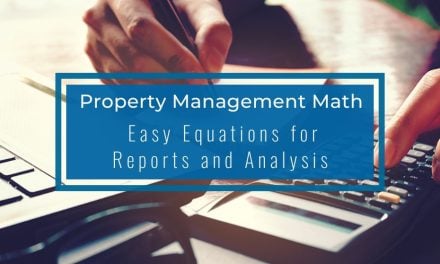
A renter’s lease agreement is a binding contract that outlines the conditions for tenancy at a rental property. You will make this agreement with your landlord or the property management from which you are renting.
Signing the Lease
Lease signing can take place in person or be completed online before you move into a new unit. If you sign the lease with your landlord or property manager present, they should go over all the important terms with you. Make sure you ask questions and understand these parts of the lease.
If you sign the rental lease online, with the help of electronic signatures, it will be up to you to read through the document and understand everything to which you are you are agreeing. Do NOT treat a rental lease signing like a ‘Terms of Service’ check box. Lease agreements are very important legal documents.
Understand the Lease Terms
To help you get through a lease signing easily and without any surprises down the road, we are outlining some common lease terms and conditions you should pay attention to. If you end up violating a simple lease term, you could end up with a fine, an official warning for eviction, or maybe even a notice to vacate on your door.
Rental lease agreement have lots of conditions and terms that come standard in every lease, like property information, rent amount, names of managers and tenants. But they also have a ton of other important information that will play a role in your tenancy.
Lease Terms for Renters
Rent Due Date and Grace Period
The rent due date is the day you are supposed to pay your rent. Some states allow a grace period, which are additional days a tenant is allowed to pay the rent before a landlord can post a “pay rent or quit” notice on your door (ie you have XX number days to pay your rent before I evict you). While a landlord cannot charge a late fee during the grace period, he can consider the rent late if paid after the due date – which can work against you in your future landlord reference.
Extended Absence
Look for language about requirements to notify your landlord if you will be out of town for an extended period of time, like for a vacation. Some landlords might even require you to give notice if you will be out of town for as little as 3 days. This is important if the landlord needs to access the unit or get ahold of you for an emergency.
Inspections
Are there seasonal or annual inspections of the property? These might include an annual appliance service, or a seasonal maintenance visit. It’s a good idea to know when your landlord will be stopping by and the lease will give you an idea of when to expect these normal landlord or management visits. FYI while quarterly or annual inspections are normal, I would question monthly inspections, as they get annoying or burdensome.
Renters Insurance
Property managers and landlords might require their tenants to obtain renters insurance as a condition of the lease agreement. Failing to provide proof or to get insurance can be considered a lease violations. If you don’t have renters insurance already, ask your future landlord if they offer renters insurance via their property management software.
Overnight Guests
Double check the lease for information about having guests stay overnight at the property. Some super strict lease agreements won’t allow a tenant to have a guest spend the night more than a couple nights in a row. This can be a challenge for people in relationships, where sleepovers happen often. If your state laws allow it, a landlord might be totally within their rights to say something like, “No overnight guests for more than 7 consecutive nights”. If this is a deal breaker, consider a new lease. Here’s a story for a tenant who is getting evicted because he violated an overnight guest policy.
Decorating
It is fairly common for a lease to prohibit decorating, like painting, hanging pictures, changing light fixtures, or adding curtain. Basically anything that can be potentially damaging to the walls or property fixtures.
Parking Terms
Consider additional parking fees and guest parking policies. Also look at how many cars you are allowed to park on the property and if you are allowed to park in front of neighboring houses.
Storing Things on Your Patio
Some lease agreements have rules about what is allowed to be kept on a patio or in the outside space of a property. For instance, I once received a lease violation notice for having a papasan chair on my patio. I didn’t realize that our lease only allowed designated outdoor furniture on the private outdoor space.
Rent Increases
Look for information about annual or routine rent increases. More often, property managers are building these small incremental rent increases into lease agreement, sometimes known as escalating rent charges. If it’s in the lease agreement but you forgot to pay attention, you might be shocked when your rent suddenly goes up $50/month after the first year.
Security Deposit Interest/Trust Account Location
Some states allow you to collect annual interest on the security deposit. Your lease agreement should have language about where the funds are being held and about your rights to collect the interest.
Broken Cars
If your car is undriveable, and you have it parked in your driveway or apartment parking lot, you could be violating a lease term. Some property managers will simply tow your car, others will issue a lease violation or fine. Your lease should outline what happens to cars that are broken down in the parking lot and how long they can stay parked there.
Visiting Pets
Even if you don’t own the pet, having a friend who brings over a pet to visit can get you in hot water with management. Make sure you understand the pet-policy and what the consequences are if you have a friend bring their pooch over just to say ‘hi’ one day.
Landscaping
Check the lease to find out who is responsible for landscaping and what is considered acceptable landscaping if it is a tenant responsibility.
Other terms and conditions to look for in your lease can include:
- Visitors
- Snow Removal
- Cleaning
- Pest Control
- Barking Dog
- Noise Policies
- Turning on Pipes During Winter
- Notice to Vacant
- Tenant Required Maintenance.
Final Thoughts
It’s important to note that state and federal laws dictate what can and cannot be included in a lease. In some rare cases, a landlord or property manager might include a lease term that violates federal or state law. You should be familiar with your local rental laws and what rights you have as a tenant.
- Learn more >> Top 10 Landlord-Tenant Laws To Remember






What do I do if the owner is not giving me a lease agreement and it’s been over a year and a half and they have gone up on the rent this year over $1000 increase
Hi Shelly, a landlord may choose to offer a lease but aren’t required to — and because every area has different regulations on rent increases, I would recommend checking with your local housing authority to find out if there are rent controls in place for how often/high a landlord can raise the rent on a month-to-month agreement in your area.
Our landlord for lot rent for our house wants a 3 year lease which seems normal since we have had a house there since 2006. This lease is different. They want 525 for first year and then don’t have any money listed for the next 2 years. Instead they want to evaluate the “market rate” and charge us that. My concern is once we have signed the lease then next year it will be 3000 and since we signed the lease we would be stuck. Is what they are doing even legal
I signed a lease to rent a property I’m supposed to move in on March 1st of this year 23, due to personal circumstances I’m not going to be able to move in period. I have already given them the application fee and there’s another fee on there for $175 and the total came to $240. I already paid them that and I don’t care about that, but they’re telling me that I am responsible for the whole year full term of the lease because I signed it, and I’m not even scheduled to move in till March 1st. Can I get out of this, that’s what I want to know, Please advise!
Hello. My Mom and I have rented a 2 bedroom 2 bathroom apartment on the top floor of this Apartment complex and we live in the 500 building. There are apartment buildings 100 to 800. When we first moved in back in Feb 2006 the rent was only $650 a month for 11 years. Then in Sept 2017 we got a letter or notice that the rent was being raised to $875 a month and that’s a big increase. Then in Nov 2021 it was raised again to $1025 a month and I was unemployed so my Mom had to pay it. I have had disabilities and SS Security Disability Case pending. If that wasn’t enough of a increase in rent it is going up to $1450 a month in July 1st. Nice when my Birthday is July 15th. I’ve been co signer of the lease for a few years. I wasn’t before paying half the rent to my Mom. I have looked into rental assistance but I haven’t gotten anywhere. Just that unless we were behind on rent then we would qualify. I’m not my Mom’s dependent but at her age of 91 she’s more dependent on me. There is new ownership so the landing that owned the property sold it and said goodbye and thanks to the tenants for being so good and such. It’s sugar coated from what I could read. I talked to him about my neighbor knocking on the wall of my bedroom when he thought I was playing my music loud even if it was during the day and not late. It was annoying and I would be shocked. I would turn it off and it’s a smaller young Mexican guy and he even came to our door at 6:30 am and knocked on it. I thought that can’t be right and really nervy of him. My Mom thought he was kind of crazy or disturbed. Well the Landlord warned me of an eviction back in 2021 and I got a lawyer to back me up with a letter of consignment stating harassment by my neighbor. I was right because it is harassment. I could hear him knocking on the wall above the movie or music I was playing. Incredible I haven’t experienced that ever before but I was living in my Sisters house before with my Mom. Anyway it’s a shock for such a big rent increase. Because of property taxes going up again or they are really going to make this 35 year old apartment complex look more new or current?
Sincerely, Paul Cantillo